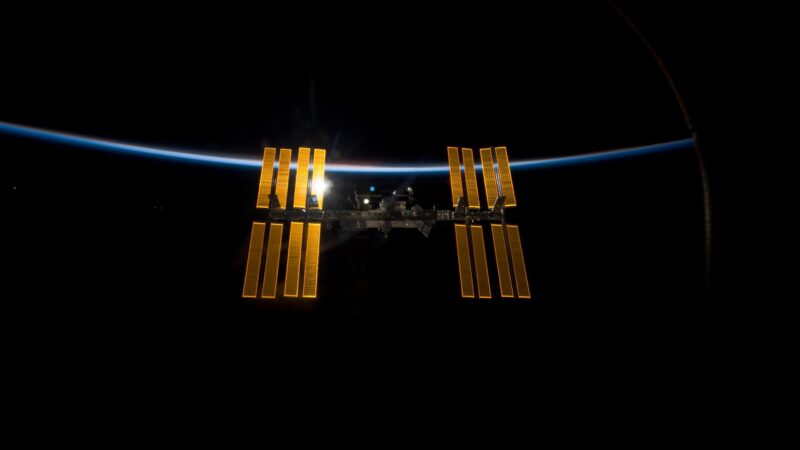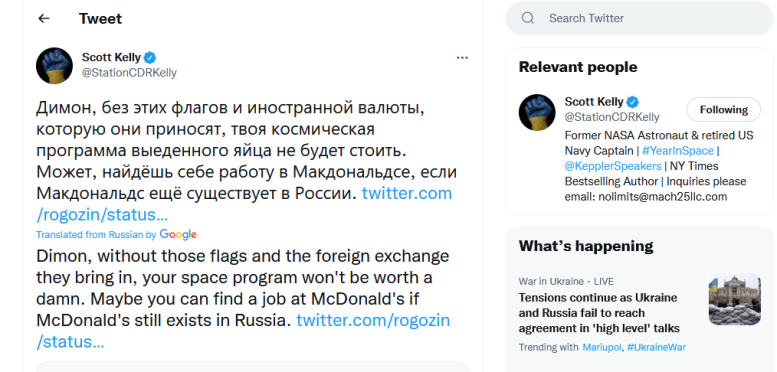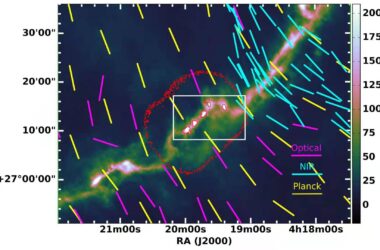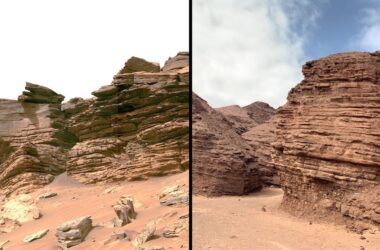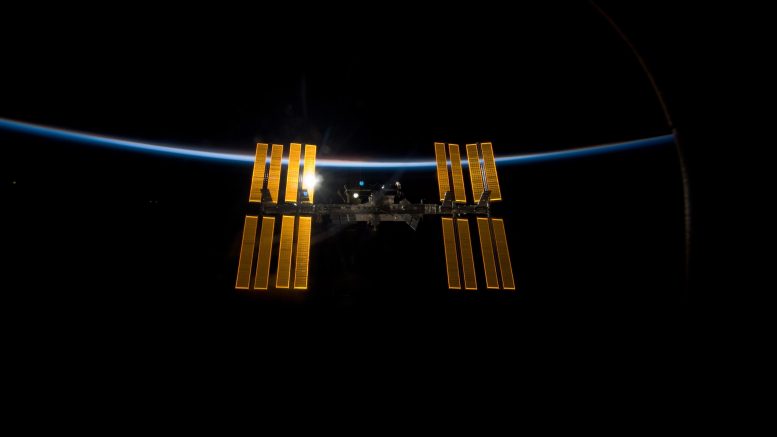
La station spatiale internationale vue de la navette spatiale Discovery lors de la mission STS-119. Crédit : NASA
Le monde est en état d’alerte en raison de la crise qui se déroule entre l’Ukraine et la Russie. Depuis que les troupes russes ont commencé à se déployer dans les régions frontalières entre les deux pays, on craint qu’un conflit ne s’ensuive. Depuis le début de l’invasion, il existe également de réelles inquiétudes quant au risque de débordement sur les États voisins, voire d’escalade jusqu’à une impasse nucléaire. Au milieu de tout cela, il y a également eu des inquiétudes quant aux conséquences que cela pourrait avoir sur les efforts internationaux dans l’espace.
La Station spatiale internationale (ISS) est rendue possible grâce aux efforts de coopération et au financement de ses agences spatiales participantes – ;” data-gt-translate-attributes=”[{” attribute=””>NASA (U.S.), Roscosmos (Russia), the ESA (Europe), the CSA (Canada), and JAXA (Japan). As such, it was rather curious when Russian state media company RIA Novosti posted a video online that showed Russian cosmonauts packing up and detaching the Russian segment from the ISS. Whether this represents a threat or a prediction, the message is clear: cooperation in space may be the next casualty of this war!
Russian gov’t-controlled RIA Novosti @rianru posted a video on Telegram made by @Roscosmos where cosmonauts say goodbye to Mark Vande Hei on #ISS, depart, and then the Russian segment detaches from the rest of ISS. @Rogozin is clearly threatening the ISS program. #NASA #Ukraine pic.twitter.com/fj2coK1xR1
— NASA Watch (@NASAWatch) March 5, 2022
The video appeared on Telegram, a cloud-based instant messaging platform that was previously restricted in Russia (it was officially unblocked in June 2020). The video is tagged with RIA Novosti’s logo and shows cosmonauts entering the Russian segment of the ISS, sealing the hatches behind them, and saying goodbye to NASA astronaut Col. Mark T. Vande Hei, the Flight Engineer for Expedition 64 and 65 (Oct. 2020 to Oct. 2021).
The video then shows the Russian segment – made up of the Zarya, Zvesta, and Nauka modules – detaching from the station (which includes real footage and CGI-animation) and footage of mission controllers at the RKA Mission Control Centre in Moscow watch and applaud. The video concludes with the disclaimer: “This is based on unreal events.” In other words, the video consists of spliced footage depicting something that hasn’t actually happened (just in case that wasn’t clear!)
This video appears to be the latest salvo in an ongoing war of words between Russian sources and astronauts on social media. On the same day that NASA Watch retweeted the video, Roscosmos head Dmitry Rogozin tweeted the following statement:
“The blame for the collapse of cooperation in space lies on the shoulders of the United States, Britain, France and Germany. These countries destroyed what was created by mankind with such difficulty, what was created by the blood and sweat of those people who mastered space.”
This echoed statements he made in an interview with Russian state television (the clip was included in the tweet). It was also mirrored by multiple statements and actions taken by Rogozin in recent weeks, all of which appeared to show how Russia could threaten or hold up operations aboard the ISS. It all began with Rogozin tweeting his support for Russia’s invasion of Ukraine and threatening to stop cooperating on the ISS.
Стартовики на Байконуре решили, что без флагов некоторых стран наша ракета будет краше выглядеть. pic.twitter.com/jG1ohimNuX
— РОГОЗИН (@Rogozin) March 2, 2022
These include (but are not limited to) announcing that Russia will no longer service Russian-made engines used to launch American satellites. Shortly after U.S. President Joe Biden announced sanctions aimed at Russia’s aerospace industry, Rogozin issued a series of hostile tweets. In one, posted on Feb. 24th, he went as far as to say that without Roscosmos, the ISS could fall on Europe:
“Europe? There is also the option of dropping a 500-ton structure to India and China. Do you want to threaten them with such a prospect? The ISS does not fly over Russia, so all the risks are yours. Are you ready for them? Gentlemen, when planning sanctions, check those who generate them for illness.”
On February 27th, while arguing with a user who voiced criticism of his support for Putin and the invasion of Ukraine, he tweeted: “Reading the news feed, you see what chronic hatred the West has for Russia, and how every Russophobe is trying to interrupt the “common cause” with a personal contribution of his own s*** and poison.”
But it was the video he posted on March 2nd that appeared to have the biggest impact. In this video, technicians at the Baikonur Cosmodrome in Kazakhstan are shown taping over the American and Japanese flag decals on a Russian rocket, with the caption: “The launchers at Baikonur decided that without the flags of some countries, our rocket would look more beautiful.”
This prompted a response from Scott Kelly, the famous NASA astronaut who spent over a year aboard the ISS as part of the NASA Twins Study. On March 6th, Kelly responded (in Russian), tweeting: “Dimon, without those flags and the foreign exchange they bring in, your space program won’t be worth a damn. Maybe you can find a job at McDonald’s if McDonald’s still exists in Russia.”
This barb referenced how the multinational fast food conglomerate recently decided to suspend operations in Russia (along with Coca-Cola and Starbucks). Kelly took things up a notch, reposting a hostile tweet that Rogozin appeared to have posted angrily, then deleted. The row ended with Kelly triumphantly posting the notification that Rogozin had blocked him. In the world of social media, I believe this is what is called “check and mate!”
At this juncture, it’s impossible to predict how this unfolding conflict will end or how it will impact the ISS and other space programs. For over 20 years, the ISS has been a symbol of cooperation between the nations and their respective space programs. In 2014, relations were similarly strained between Russia and the west because of the situation of Crimea (where Russian forces annexed the peninsula in response to the ouster of then-pro-Russian President Viktor Yanukovych).
Despite that, Russian declared in 2015 that its modules would remain with the ISS until 2024. At present, many still hope Russia can be persuaded to maintain that commitment until its planned decommission date of 2030. Granted, the ISS has never been above politics or disputes between its member nations. Still, amid all the death and destruction happening right now, it is tragic to see that the conflict could also spill over into space!
Originally published on Universe Today.
